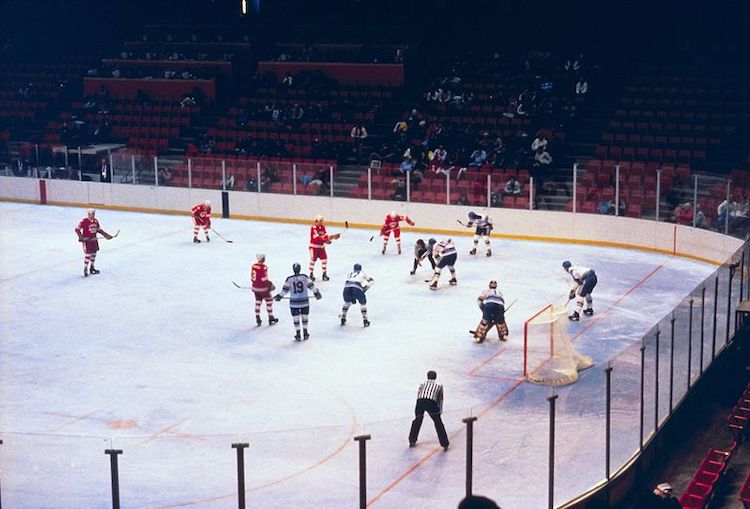Remembering The Miracle On Ice
February 1980: Not only was it the year that Lake Placid, NY hosted its illustrious second Olympic games for the rest of the world, but it is still burned into the brains of many Americans as one of the most exciting Olympic stories in recent history. It was the year that the youngest ever U.S. Olympic hockey team, led by coach Herb Brooks, brought home the gold medal after a nail-biting face-off against the Soviet Union.
David vs. Goliath
The Soviet Union’s hockey team was a stark contrast to the United States’ offering of mostly college amateurs. Stacked with seasoned veterans, the Soviets were thought to be a shoo-in for the gold medal in hockey. Their aggressive offense, early scoring, and technical puck handling proved to continually bombard and degrade their opponents every game. Their goaltender, Vladislav Tretiak, was thought to be practically impenetrable. In fact, the Soviet Union had snagged the gold medal in four straight winter games. The U.S. team hadn’t been able to win against them since 1960, a 20-year old monkey on the backs of the U.S. players.
This bone of contention was especially painful for Coach Brooks, as he was the last person to be cut from the U.S. team in 1960. Known for his relentless and demanding style, Herb Brooks pushed his team to the limit, both physically and mentally. He was known to force the team through so many wind sprints that the players started nicknaming them “Herbies.” Showcasing a team in absolute peak physical condition was only part of his approach, however. Brooks also made sure that his team knew everything there was to know about the Soviets’ approach to the game. Every nuance. Countless hours were logged watching previous games and learning their strategies and habits.

Emotions Running Wild
On February 22 at 5 pm., 8,500 excited fans filled Lake Placid’s Olympic Center with earth-shattering cheers and support. Of course, the Soviets came out fighting strong, taking a 1-0 lead after only 9 minutes. Just five short minutes later, the Americans would tie it up. After an energetic back and forth first period, the Russians led 2-1, but with only a second left, U.S. center Mark Johnson expertly drove home a rebound to tie it at 2-2. Eric Strobel, the American team’s forward, would remember, “I’ve never, ever experienced that kind of emotion and the kind of adrenaline rush that I felt in that room after the first period. It was like your skates weren’t even touching the ground.”
Not used to such a close game, the Soviet coach Viktor Tikhonov, decided to pull Tretiak from goal and play Vladimir Myshkin. The Soviets pummeled the Americans relentlessly throughout the second period, peppering Craig’s goal almost constantly, out shooting the U.S. 30-10, and giving the Soviets a 3-2 lead at the end of the period.
The third period seemed like a nail-biting eternity for American fans, with no scoring for the first 8 minutes, when Mark Johnson scored his second goal of the night. Fresh on his heels, team captain Mike Eruzione pounded a 25-foot slap shot past Myshkin to make it 4-3. Of course, it became pandemonium at that point, with the Americans posting their first lead of the evening.
The last 10 minutes of that game seemed to flash by in a blur and last forever at the same time. What would happen was anyone’s guess. But with skill, intensity, and unwavering support from ecstatic fans, the U.S. was able to hold on and lead their team to victory against the Soviets. It was one of the biggest upsets in Olympic history. This, of course, led to one of the biggest celebrations in U.S. hockey history, with people partying and hugging in the streets and singing patriotic songs into the wee hours. With the pressure of Cold War politics, the implications of this match-up and subsequent win became even more pronounced.

The Aftermath
Indeed, the U.S. celebrated as though it had won the gold medal, practically forgetting that they still had to defeat Finland in one final game—a final game in which they would again come from behind to score three stellar goals in the third period to seal the deal with a 4-2 lead. But that was just icing on the cake of what was definitely a “miracle” finish to an adrenaline-pumping underdog story—a story that is still recalled decades later by many.

